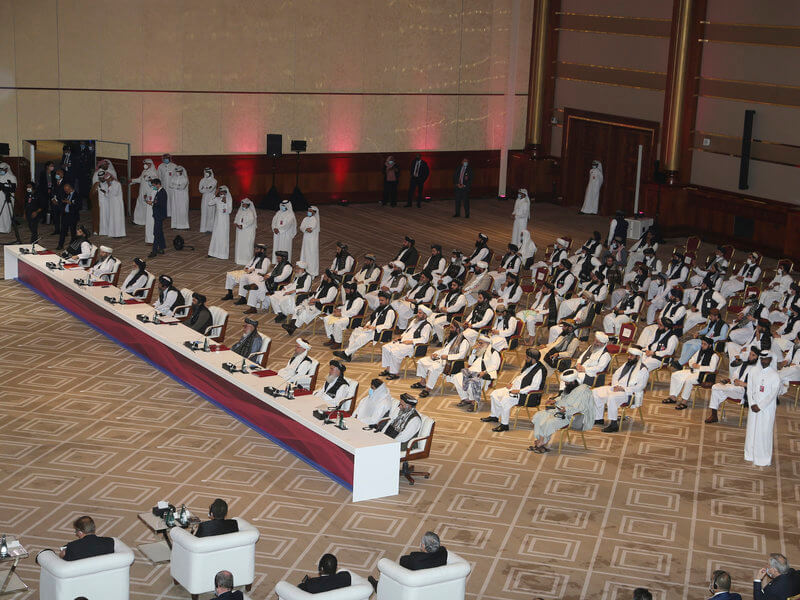In what is being considered as a major step forward in the peace negotiations between the two warring sides in Afghanistan, the Taliban and the Afghanistan government have entered into their first written agreement after 19 years of war. The move has been applauded by both the United Nations (UN) and the United States (US), which has been looking to withdraw its troops from the region since it signed the peace deal with the Taliban in February. According to the US Special Representative for Afghan Reconciliation, Zalmay Khalilzad, both the warring sides have agreed on a “three-page agreement codifying rules and procedures for their negotiations on a political map and comprehensive cease-fire.” He also said that this was indicative of the ability of the two sides to conclude talks on several controversial issues.
The deal discusses the future of the peace process in Afghanistan and paves the way for negotiations on other crucial issues, including the declaration of a ceasefire. Nader Nadery, a member of the Afghanistan government’s negotiation team, said, “The procedure including its preamble of the negotiation has been finalised, and from now on, the negotiation will begin on the agenda.” This was then confirmed by Mohammad Naeem, the spokesperson of the Taliban. A joint statement by the two sides said, “A joint working committee was tasted to prepare the draft topics for the agenda [of peace talks].” However, there is no clarity on the timeline for a cease-fire in the region. While the Afghan government has repeatedly insisted on an immediate halt of violent attacks in Afghanistan, the Taliban says that a cease-fire will only be declared once the peace deal has been concluded.
Last month, a similar agreement was delayed after the Taliban protested the mention of President Ashraf Ghani led government in the agreement’s preamble. According to the Taliban, the Ghani government is a mere puppet of the US government. Hence, time and again, they have refused to recognise the incumbent government and have denied requests to enter negotiations with them. The two sides also disagree on the form of the Islamic law that should govern any differences between the negotiators.
This deal comes as violence continues to ravage Afghanistan, despite ongoing peace negotiations in Qatar, which began in September. In fact, since the US and the Taliban peace deal, the region has seen a sharp surge in the incidents of violence, specifically against Afghani security forces. According to the US-Taliban deal, in exchange for a permanent cease-fire and a power-sharing agreement with the Afghani government, all foreign troops will have to exit the region by May 2021. Consequently, two weeks ago, the United States announced its decision to further reduce the presence of its troops in Afghanistan from 4,500 to 2,500. British defence secretary Ben Wallace said that the United Kingdom is likely to join the United States and pull back its troops too. However, the Taliban is yet to live up to its promise to bring an end to its violent activities in the region. In fact, on Monday, in one of the most violent attacks in months, 34 members of the Afghani security forces were killed in a suicide bombing attack. Hence, while the recent deal is undeniably a step in the right direction, the Taliban’s commitment to the peace negotiations will remain unclear until tangible steps are taken to reduce violence in the region.
Afghan Govt, Taliban Sign First Written Agreement in 19 Years
In what is being celebrated as a major breakthrough for conflict resolution in Afghanistan, the Afghanistan government and the Taliban signed a preliminary deal to bring peace to the region
December 3, 2020

Representatives of the Taliban and the Afghan government during the opening session of the peace talks in Doha on September 12. SOURCE: ASSOCIATED PRESS
